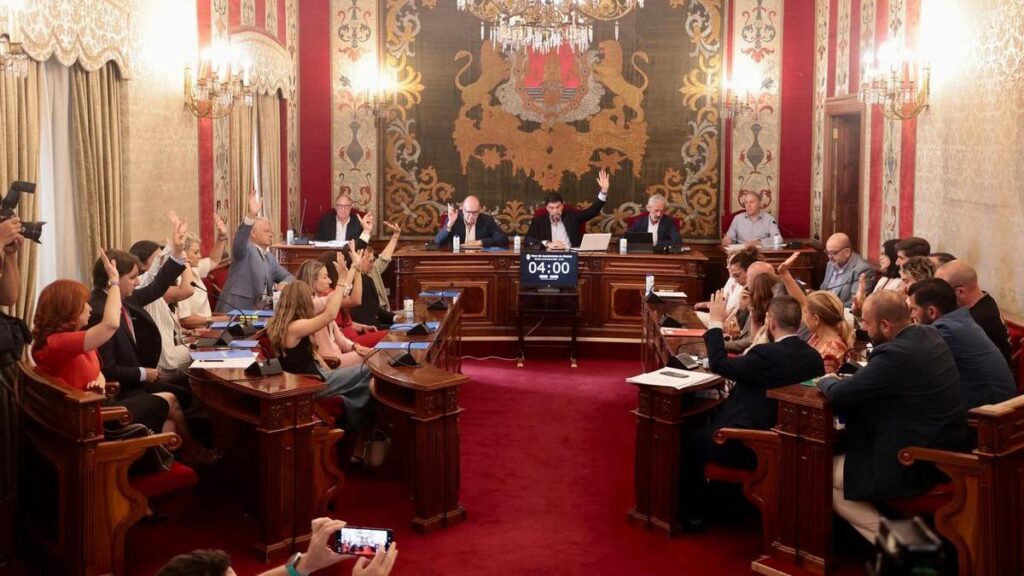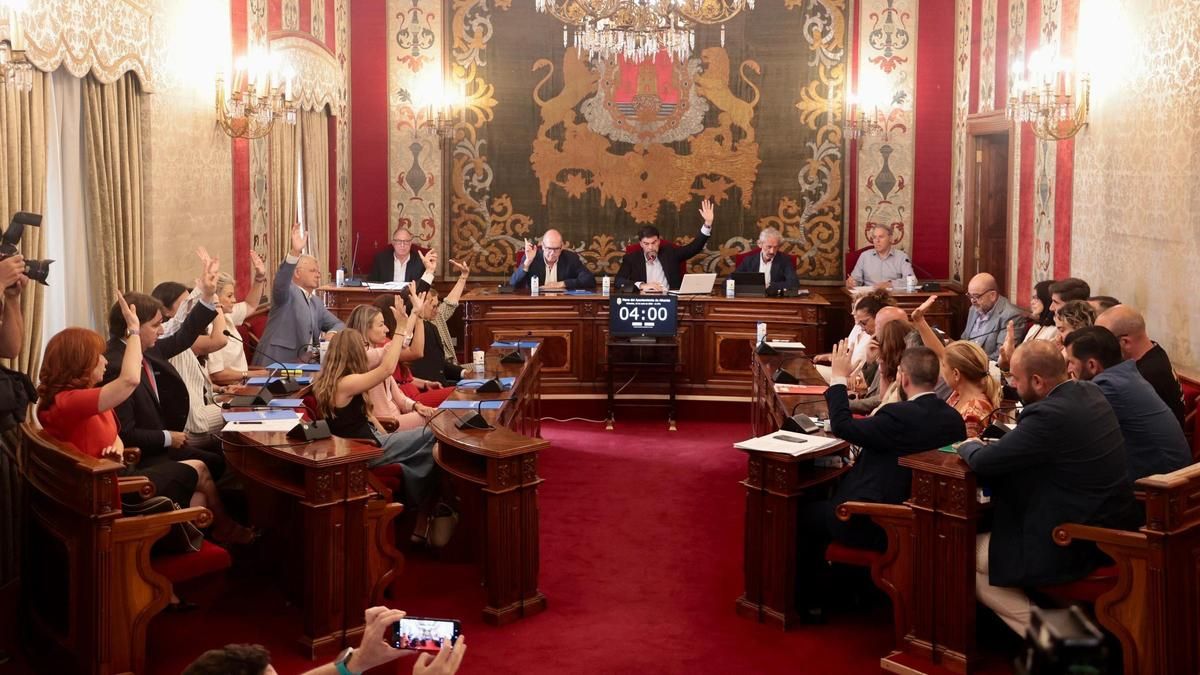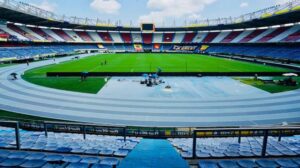

Full of the City Council of Alicante on June 25. / Héctor Fuentes
Recently, we have learned that in the plenary of the City of Alicante of June 26, 2025 the approval of an institutional declaration will be debated to urge the Valencian Parliament to amend the Law of Use and Education of Valencian (LUEV) and declare Alicante as a Spanish -speaking city. It is not the first round that the question is debated in the plenary of the city, but now it is the result of a pact between PP and Vox to approve the financial plan, a kind of collateral damage that will seriously harm the linguistic rights of the citizenry and, if approved, will establish an irreversible precedent that will break one of the oldest and most valuable consensus of our society, which has been approved by more than 42 years: Just in the capital of Alicante.
Excluding Alicante from the Valencian linguistic predominance area would involve a historical decline, especially in the educational field. As specialists in education and pedagogy, we can assure that much of the available and recent scientific literature on language learning and acquisition explains and argues that plurilingualism is beneficial for people in many ways, basically because a multilingual brain becomes richer, more diverse, with a part of the more and better connected neurons, and accustomed to working with more intensity. But this scientific literature also warns that these proven benefits are really relevant when the two languages have been learned from an early age and when there is effective and frequent use of the two languages. The social situation in which Valencian and Spanish are in our city allows these two conditions to be fulfilled. We must not miss the opportunity to take advantage of two languages that are available here, so by hand; Moreover, the fact that the use of Valencian in Alicante is currently low, requires that we promote educational systems that deploy a methodology to immerse our children and our girls in the language that is in inferiority of conditions, all without belittling the mastery of the other school languages.
The properties of this multilingualism, according to experts, benefit, first of all, the development of the brain and cognitive functions, such as short -term memory and capacity for attention and concentration. That is why it is recommended to maintain multilingualism as an important asset in the formation of our children and young people, not only because of the importance of speaking several languages in a globalized, hyperconnected world, but also because of the clear positive effects it has on the training and basic functions of your brain.
Secondly, plurilingualism implies advantages for social integration and for promoting respect for cultural and linguistic diversity. In addition, it improves coexistence with people who live in the half of our territory, who have Valencian as their first language; In Alicante, almost 17 % of the respondents use Valencian as their usual language, so if we extrapolate it to the population of the city, there are perhaps about 60,000 people who would be treated as second citizens if Alicante is declared Spanish -speaking territory. This decision would then be inconsistent with reality.
Third, it has advantages for joining the labor market: most of our children will work as adults in this territory. Mastering the use of the two official languages in the professional world will be a merit or requirement, as the case may be. We should not exclude any child from benefiting from this value. In fact, many of our students who come from Villena, Elda, Asp, Almoradí or Oriola discover in the first career who have scammed them, because, unlike their colleagues in Alicante, St. Vincent, Sant Joan or Elche, they do not know how to write or speak well in Valencian. They have been hidden a fundamental part of their culture: because they speak Valencian or non -Valencian, this language is also his and impregnates the life and history of our Spanish -speaking counties. In fact, we recommend the video and the exhibition We weave ties from the south of the southfrom the Valencian Academy of the Language, where you can check, among other things, that camal, grp, POLSAGUERA, tire o carob These are the words of the Valencian of Alicante that are also called in Almoradí or Elda.
Fourth, respect for the Valencian Alicante has an emotional and identity dimension that we are living with special intensity these days, when the major festivals of the city, the bonfires of Sant Joan, encourage us to live sound masters, share cake with tuna and bacores in the corners and shacks, singing The Manta Al Coll or the anthem of the bonfires (On the night of San Juan / when thunder and thunder are thrown, of very large and good axes, from twelve in front), and read the booklets in Valencian, who, with humor and art, make a lucid critical of today's society. We cannot conceive of Alicante without the beauty of the fire or the raucous sound of the dolçaina, or without the excitement of the burning and bathed with which we end these intense days between the fire and the water. In addition, if we look around, it is clear that the Valencian is our own language: the places tell us (the Raval Roig, the Postiguet, the Pla del Bon Repòs, the Bacarot, the Maigmó, the Grossa Serra, the Albuferreta, the Tossal), the culture and the traditions (the stories of Peret and Marieta, by Pere Somera, of Alicante –We are children of the village!) … everything is in the language of Alicante, in the historical language and, fortunately, still alive and current in this city. Respecting, dignifying and recognizing it is a matter of justice.




